第72章 Section 9(2)
The council decided to give them everything they wanted, but in a form that suited ill with their aspirations. It became at one stroke a representative body. It became, indeed, magnificently representative. It became so representative that the politicians were drowned in a deluge of votes. Every adult of either sex from pole to pole was given a vote, and the world was divided into ten constituencies, which voted on the same day by means of a simple modification of the world post. Membership of the government, it was decided, must be for life, save in the exceptional case of a recall; but the elections, which were held quinquenially, were arranged to add fifty members on each occasion. The method of proportional representation with one transferable vote was adopted, and the voter might also write upon his voting paper in a specially marked space, the name of any of his representatives that he wished to recall. A ruler was recallable by as many votes as the quota by which he had been elected, and the original members by as many votes in any constituency as the returning quotas in the first election.
Upon these conditions the council submitted itself very cheerfully to the suffrages of the world. None of its members were recalled, and its fifty new associates, which included twenty-seven which it had seen fit to recommend, were of an altogether too miscellaneous quality to disturb the broad trend of its policy. Its freedom from rules or formalities prevented any obstructive proceedings, and when one of the two newly arrived Home Rule members for India sought for information how to bring in a bill, they learnt simply that bills were not brought in. They asked for the speaker, and were privileged to hear much ripe wisdom from the ex-king Egbert, who was now consciously among the seniors of the gathering. Thereafter they were baffled men....
But already by that time the work of the council was drawing to an end. It was concerned not so much for the continuation of its construction as for the preservation of its accomplished work from the dramatic instincts of the politician.
The life of the race becomes indeed more and more independent of the formal government. The council, in its opening phase, was heroic in spirit; a dragon-slaying body, it slashed out of existence a vast, knotted tangle of obsolete ideas and clumsy and jealous proprietorships; it secured by a noble system of institutional precautions, freedom of inquiry, freedom of criticism, free communications, a common basis of education and understanding, and freedom from economic oppression. With that its creative task was accomplished. It became more and more an established security and less and less an active intervention.
There is nothing in our time to correspond with the continual petty making and entangling of laws in an atmosphere of contention that is perhaps the most perplexing aspect of constitutional history in the nineteenth century. In that age they seem to have been perpetually making laws when we should alter regulations. The work of change which we delegate to these scientific committees of specific general direction which have the special knowledge needed, and which are themselves dominated by the broad intellectual process of the community, was in those days inextricably mixed up with legislation. They fought over the details; we should as soon think of fighting over the arrangement of the parts of a machine. We know nowadays that such things go on best within laws, as life goes on between earth and sky. And so it is that government gathers now for a day or so in each year under the sunshine of Brissago when Saint Bruno's lilies are in flower, and does little more than bless the work of its committees. And even these committees are less originative and more expressive of the general thought than they were at first.
It becomes difficult to mark out the particular directive personalities of the world. Continually we are less personal.
Every good thought contributes now, and every able brain falls within that informal and dispersed kingship which gathers together into one purpose the energies of the race.